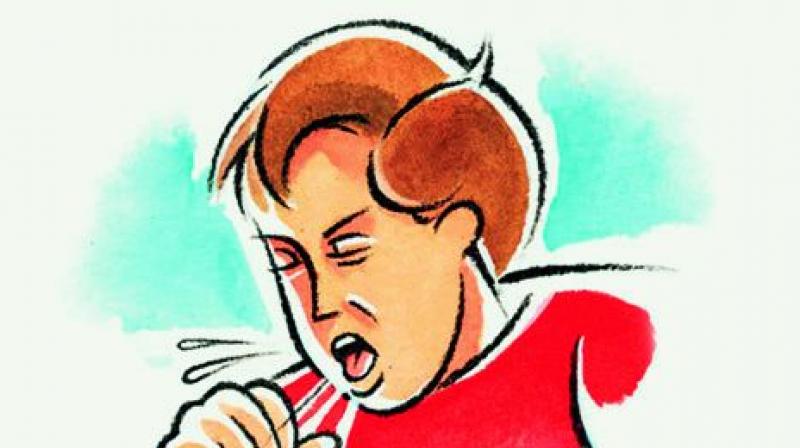Strict isolation must for fighting drug resistant TB: Experts
With 2.8 million cases of TB in India, it is necessary to take effective steps to reduce the number of new cases.

Hyderabad: Extensively drug-resistant tuberculosis (XDR TB) and multi-drug resistant tuberculosis (MDR TB) are man-made, so it is necessary to isolate patients and take precautionary measures.
With 2.8 million cases of TB in India, it is necessary to take effective steps to reduce the number of new cases.
Dr Narendra, senior chest specialist at Osmania General Hospital explained, “The spread of MDR and XDR TB is a man-made problem as patients do not take medicines on time. They fail to follow the regime and that adds to the burden of TB. Both MDR and XDR are a cause of concern as the bacteria is strong and resistant to drugs. Those who come in contact with MDR and XDR TB patients contract a stronger virus and those new cases require very aggressive treatment.”
Close contact with TB patients should be avoided and experts hold that patients should be isolated or wear masks whenever in contact with others.
The prevalence of active TB among close contact is 2.5 per cent. The highly infectious smear positive TB is estimated to have affected 2.8 million people in India.
Dr S. Mallikarjun Rao, senior consultant pulmonologist and chest specialist at Apollo Hospitals says that XDR TB is dangerous because the TB becomes resistant to the second line of TB drugs. “There are at least four drugs to which there is resistance. These severe cases are serious for the patient and also for the near and dear ones. Strict isolation is required during the treatment process and precautionary measures of wearing a mask are important when in public.”
Strict protocols for isolation will help deal with the increasing burden. Patients must be made aware that they are spreading the disease and that their isolation is important. But as a senior pulmonologist said, on condition of anonymity, “Isolation is a very tricky issue as the patients who come in are mostly earning members and for them to be away from work becomes a major challenge. But an incentive must be provided by the government so that the spread can be controlled.”
XDR TB requires treatment for at least two years and the newer drugs are not available in many centres.
Dr K.K. Aggarwal, vice president of Confederation of Medical Associations of Asia and Oceania explained, “For MDR and XDR TB, we need designated centres for efficient handling. Isolation if required must ensure that there is some compensation for the patient. At the same time, treating doctors must also be awarded. It must be made compulsory by the government to test all family members who come in contact with an XDR and MDR TB patient. This is the only way to control the spread of TB in India.”

